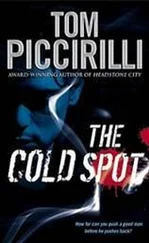As novices, we were expected not just to acquire knowledge, but also to preserve and transmit its most precious elements, namely the Holy Scripture. That meant copying. We were issued once again with the wax tablets from which we had learned the alphabet, and shown how to form our letter with the help of a metal stylus and ruler. Over and over again, we practised, until we were deemed fit to mark the surface of reused vellum, over-writing the faint and faded lines left by earlier scribes until we had the gist of it. At that stage we were mixing our own ink from lamp black or chimney soot. Only when we could write a perfect diminuendo, starting with a large initial letter and then progressively writing smaller and smaller along the line, until the eye could scarcely distinguish the individual letters, were the most deft of us permitted to work on fresh vellum. It was then I appreciated why the monastery needed a never-ending supply of younger monks for the famed scriptorium just as much as it needed flocks of calves and lambs to produce the vellum skins. Young animals provided unblemished skin, and young monks provided sharper eyes. Our finest copyists were men of early to middle age, deft, clear-eyed and with remarkable artistic imaginations.
Strangely, the materials designed to please the eye remain in my memory according to their smells. The raw calfskins had been steeped in a fetid concoction of animal dung and water to loosen the hairs so they could be scraped off easily, and they gave off a pulpy, fleshy odour while stabilising in a wash of lime. Oak galls had a bitter stink when crushed to provide our best red ink, and as for greens and blues I still smell the sea whenever I see those colours. They were made by squeezing out the juice from certain shellfish found on the rocks. We then left the liquid to fester in the sun, which made the extract alter from green, to blue, to purple, all the while giving off the pungent smell of rotting bladderwrack. It complemented the fishy odour of the fish oil we employed to bind the ink.
The transformation of these reeking originals to such beauty on the page was a miracle in itself. I was never an outstanding copyist or illustrator, but I acquired enough of the techniques to appreciate the skill involved. Observing one of our finest illuminators decorate the initial letter of a Gospel would make me hold my breath in sympathy in case he made a slip. He required a steady hand as well as the finest brush - the hair from the inside of a squirrel's ear was favoured for the most delicate work — and a rare combination of imagination and geometric skill to interweave the lacing patterns that twined and curved like tendrils of some unearthly plant. Curiously, I was reminded of the patterns that I had seen — it seemed so long ago — carved on the curling stem post of King Sigtryggr's royal ship when he sailed from Orkney. How or why the patterns, Christian initial and Viking prow, were so similar I did not know. What was even stranger was that so many of the bookish trellis patterns ended in a snarling figurehead. That I could understand on the high bow of a ship of war, designed to frighten the enemy, but how the motif was found in a book of Holy Scripture was beyond my understanding. Still, it was not a topic on which I dwelt. The extent of my contribution in penmanship was to write the occasional line in black, using the tiny script which Abb Aidan favoured because it meant more words could be squeezed on each expensive square inch of vellum, and I was delegated to fill in the red dots and lozenges which were liberally scattered across the page as decoration. This kept me occupied for hours as they could number in the hundreds on a single page.
It would be wrong if I gave the impression that my life as a novice monk was spent in the fields, the schoolroom or the scriptorium. Religious instruction was severe and unfortunately was the responsibility of Brother Eoghan, who was at the opposite remove from the kindly Brother Senesach. Brother Eoghan's appearance was deceptive. He looked benign. Rotund and jovial-seeming, he had dark hair and very dark eyes that seemed to gleam with a humorous twinkle. He even had a booming, cheerful-sounding voice. But any of his pupils who presumed upon his good nature were quickly disillusioned. Brother Eoghan had a vicious temper and a grinding sense of self-righteousness. He taught not through reason, but strictly by rote. We were required to memorise page after page of the Gospels and the writings of the Church Fathers, and he tested us on our acquisition of the texts. His favoured technique was to pick out an individual in his class, demand a recitation, and when the victim stammered or erred, to suddenly rum to another student and shout at him to continue. Terrified, the second performer was sure to make a mistake, and then Brother Eoghan would swoop. Seizing the two novices, each by his hair, our tutor would complete the quotation himself, grinding out the words through gritted teeth, his face set grimly, and punctuating each phrase by banging together the two heads with a steady thump.
Every novice, and there were about thirty of us, reacted in his own way to the unyielding world in which we found ourselves. Most were meekly acquiescent and followed the rules and routines laid down. Only a handful were genuinely enthusiastic for the monkish life. One young man — his name was Enda and he was a little simple - sought to model himself on the Desert Fathers. Without informing anyone, he climbed to the top of the round tower. This was St Ciaran's most spectacular edifice, a slim spike of stone which had been a lookout in the days of the Viking raids, but now mostly used as a bell tower. Enda clambered to the very top, where, naturally, he was out of sight from the ground, and sat there for four days and four nights while the rest of us searched for him uselessly. It was only when we heard his weak calls for a supply of bread and water and saw the end of a rope he had lowered down - he had misjudged the height and his rope was dangling far too short - that we knew where he was. Brother Senesach organised a rescue party, and we clambered up and retrieved Enda, who by then was too feeble to move. He was taken to the infirmary and left there to recover, but the experience seemed to have left him even weaker in the head. I never knew what finally became of him, but in all likelihood he became a monk.
EIGHTEEN
I MADE ONLY one real friend among my fellow novices in the two years I spent at St Ciaran's. Colman had been sent there by his father, a prosperous farmer. Apparently the farmer had prayed to St Ciaran for relief when a severe cattle murrain had affected his herd. As a remedy he had smeared his sick animals with a paste made from earth scraped from the floor of the saint's oratory. When the cattle all recovered, the farmer was so grateful that he enrolled the lad — the least promising of his six sons — with the monks as a thank offering for the saint's beneficial intervention. Solid and reliable, Colman stood by me when the other novices, jealous that I outshone them in the classroom, ganged up to bully me about my own alien origins. I repaid Coleman's loyalty by helping him with his studies — he was something of a plodder when it came to book learning — and the two of us made an effective team when it came to breaking the bounds of monastic discipline.
Our dormitory huts were situated on the northern side of the monastery grounds, and at night the bolder ones among us would sometimes scramble over the monastery bank to see what the outside world was like. Slinking among the houses that had grown up around St Ciaran's, we watched from the shadows how ordinary people lived, eavesdropped on quarrels and conversations heard through the thin walls of their dwellings, listened to the cries of babies, the drinking songs and the snores. We were discreet because there were townsfolk who would report our presence to the abb if they saw us. When that happened the punishment was harsh. Spending three or four hours flat on your face on the earth floor reciting penances was the least of it. Worse was to be made to stand with your arms outstretched as a living cross until the joints creaked with pain, supervised by one of the more callous senior brothers, while reciting, over and over again, 'I beseech pardon of God,' 'I believe in the Trinity,' 'May I receive mercy.' Little mercy was available. One of the novices, reported for the second time for a nocturnal excursion, received two hundred lashes with a scourge.
Читать дальше








